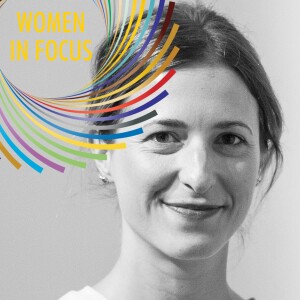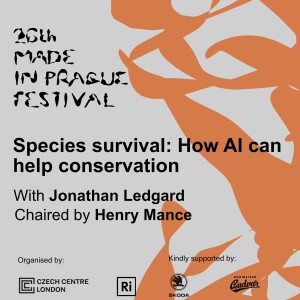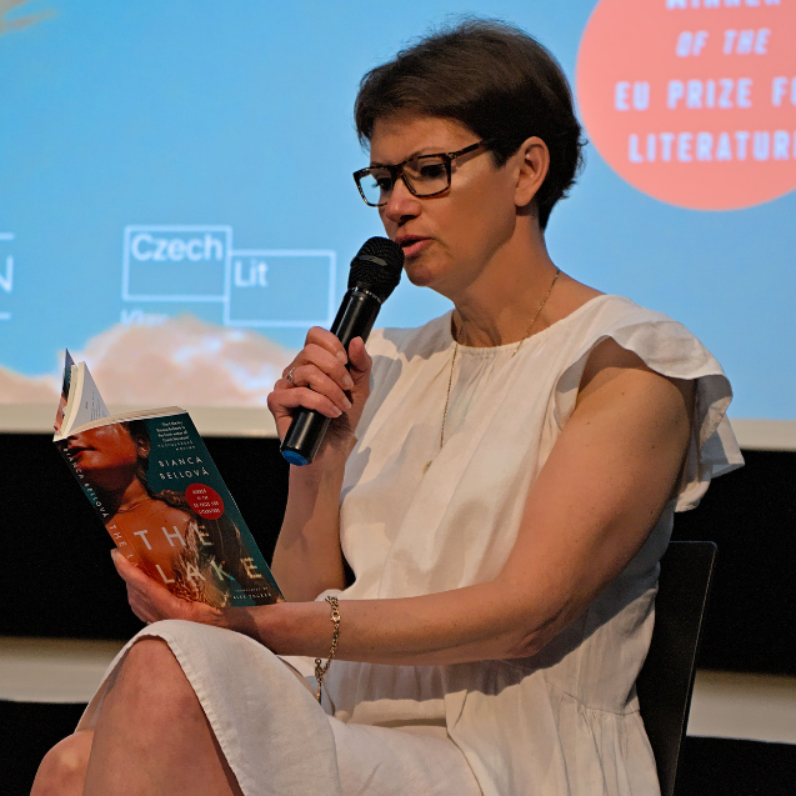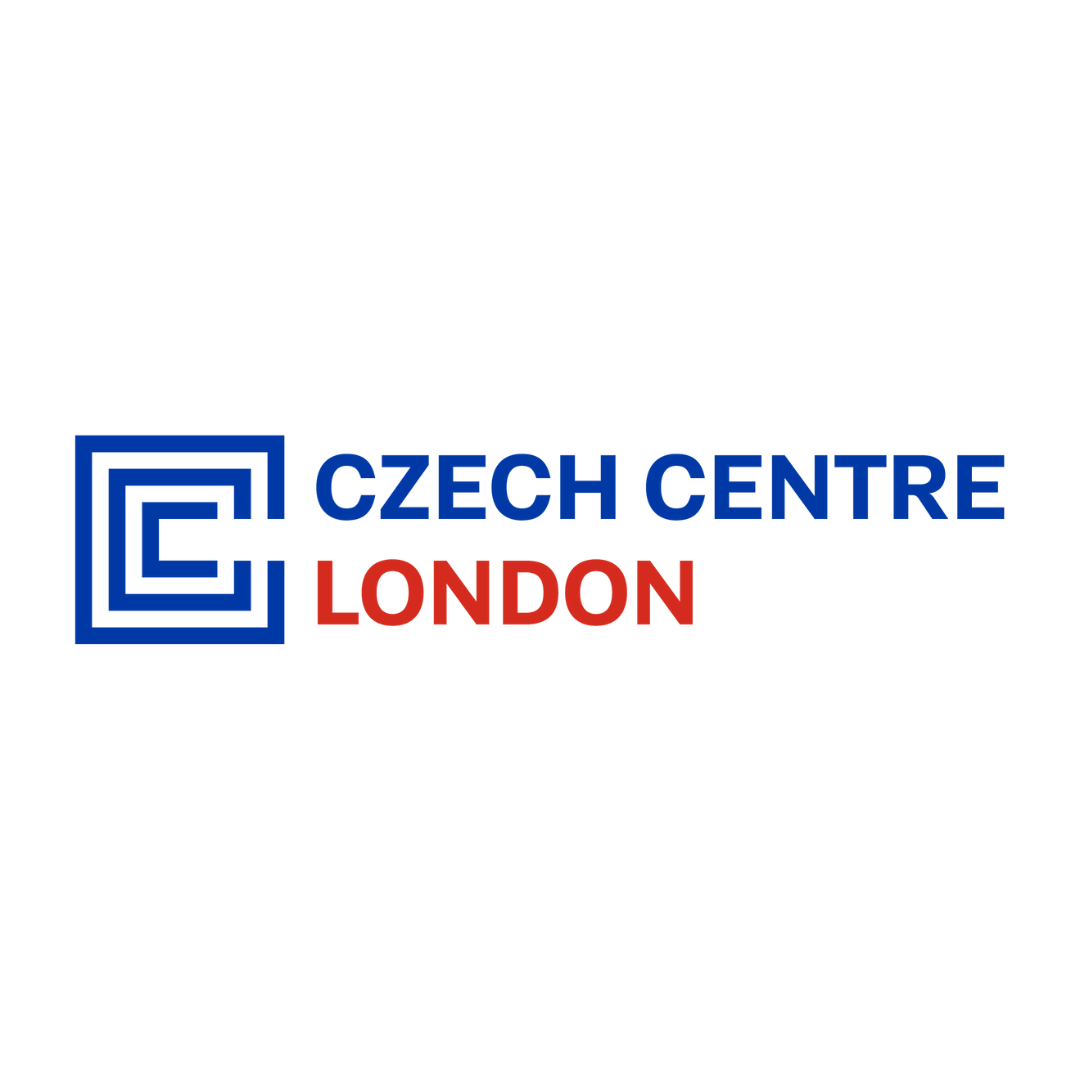Episodes

Tuesday Mar 28, 2023
Women in Focus: Monika Čejková
Tuesday Mar 28, 2023
Tuesday Mar 28, 2023
Art historian, writer and curator of Modern and Contemporary Art Collection at National Gallery Prague, Monika Čejková, was opening our brand new talk series Women in Focus. Monika discussed her interest in contemporary art which paved her journey to becoming an author and curator, and she described her recent projects mostly dealing with the notion and modification of art in the digital age. Specifically, she was talking about the philosophy of new technologies, artificial intelligence, cyber culture and the topics of post-gender world, post-humanism and digisexuality.
About the speaker:
Monika Čejková is a curator of the next Fotograf Festival 2023: #Hypertension23 at National Gallery Prague and Ora et lege II at Broumov Monastery, 2023. Recent exhibitions include e.g., The Palace of Concrete Poetry at Writers House of Georgia in Tbilisi (2022), Neo-rising at Polansky Gallery in Prague (2022), Ora et lege I at Broumov Monastery (2021), Fantasy Finery at Berlínskej model Gallery in Prague (2021), Blasted Heathat AM 180 Gallery in Prague (2020). She studied History of Art at the Charles University in Prague. She is currently undergoing curatorial residency at the Delfina Foundation in London during which she plans to continue to expolore the theme of art in the (post) digital age and extend her research to art in relation to the new identity of the human being whose original form has been abstracted by digital space.
In 2020, Monika launched a long-term nomadic project titled "Ora et lege" – a critical dialogue between contemporary art and the teachings of the Benedictine order and the Catholic Church in general. This project is thematically focused on the work of contemporary visual artists with text and paved the way for another subject that Monika is currently exploring: the literary turn in visual art, which has brought to the fore various forms of authorial writing in relation to the overabundance of digital text.
More info:
www.instagram.com/monika_cejkova
Czech Centre London:
https://london.czechcentres.cz/en/program
Recorded at the Czech Embassy Cinema in London on Wed 23 March 2023.

Thursday Mar 02, 2023
Rusalka Revealed: Dvořák’s operatic masterpiece
Thursday Mar 02, 2023
Thursday Mar 02, 2023
To celebrate a new edition of Antonín Dvořák’s beloved opera Rusalka and a new staging by the Royal Opera House, the editors Robert Simon and Jonáš Hájek discussed Dvořák‘s lyrical fairy tale, and their work on the score and Jaroslav Kvapil’s libretto with musicologist Nigel Simeone. Anna Blackmur, Principal 2nd Violin of the ROH orchestra, shared her personal experience of playing Dvořák’s music highlighting the challenges his seemingly easy music presents to players.
Robert Simon is an American librarian and musicologist specializing in Czech music. He is the author of Bohuslav Martinů: A Research and Information Guide and recently edited Martinů's one-act opera Ariane as part of the Bohuslav Martinů Complete Edition. Other editorial projects include the Wind Quintet of Pavel Haas and Antonín Dvořák's Slavonic Rhapsodies, Op. 45. Robert currently serves as Music and Arts Librarian at the College of the Holy Cross (Worcester, MA), and previously worked at the University of Notre Dame (South Bend, IN), where he launched their new Music Library in 2018.
Jonáš Hájek is a graduate of both the Prague Conservatory and the Institute of Musicology, Faculty of Arts, at the Charles University in Prague. He also spent a year at the Hochschule für Musik und Theater in Leipzig. Since 2007, he has been an editor (since 2017 the chief editor) of the Prague branch of the Bärenreiter publishing house, which specialises in Czech music. As an editor, he has prepared the Symphony "Asrael" op. 27 by Josef Suk ("Best Edition" prize from the Association of German Music Publishers 2019), Dvořák's Romance for Violin and Piano Op. 11 and Dvořák'sNocturne for String Orchestra Op. 40. He is the publishing supervisor of the new edition of Rusalka and the editor of its libretto.
Nigel Simeone is a writer and musician with special interests in Czech music and twentieth-century opera – both inspired by seeing Janáček’s Cunning Little Vixen during a school visit to Germany in 1971. He broadcasts regularly for BBC Radio 3 (Record Review, Opera on 3, BBC Proms) and has published extensively, including twelve books, two of them on Janáček: Janáček’s Works (1997, with John Tyrrell and Alena Němcová) and The Janáček Compendium (2019). Nigel has given lectures on aspects of Czech music for the London Symphony Orchestra, Philharmonia, Wigmore Hall, BBC Proms and Welsh National Opera. He has written programme notes for the Royal Opera House, Scottish Opera, the BBC Proms, the LSO and the Salzburg Festival, and CD booklet notes for Deutsche Grammophon, Decca, Hyperion, Chandos and others.
Anna Blackmur studied as a Royal College of Music scholar under Maciej Rakowski, completing her BMus with first class honours (2010) and her Masters in Performance with Distinction (2012). In 2015, Anna was appointed Section Principal Second Violin with the Orchestra of the Royal Opera House, having previously appeared as Assistant Concertmaster with the orchestra. She has also appeared as principal with the BBC Symphony Orchestra, BBC National Orchestra of Wales, Orchestra of Welsh National Opera, and principal or coprincipal with the Academy of St Martin in the Fields (with whom she has toured extensively, directed by Joshua Bell, Sir Neville Marriner and Murray Perahia), and Scottish Chamber Orchestra. Anna is in constant demand as a recording artist, playing on multiple film and television sessions. She is also in high demand as a coach/mentor, and as a chamber musician, playing with, amongst others, the Covent Garden Soloists and Aronowitz Ensemble, and attending numerous international festivals such as the BBC Proms, and the Saronic and Aims Festivals as an artist in residence.
In collaboration with The Dvořák Society and the Bärenreiter Music Publishing House.
Cover photo: Růžena Maturová as Rusalka, National Theatre in Prague, 1901, © National Museum – Czech Museum of Music
Recorded at the Czech Embassy Cinema in London on Wed 22 Feb 2023.
For more information please visit our website here: Czech Centre London Programme

Thursday Feb 02, 2023
Thursday Feb 02, 2023
To protect nonhuman life on Earth, we need to give diverse life forms a digital focus. There is no digital platform for wild animals, trees, insects, and no way for them to make themselves known to us online. Join Jonathan Ledgard as he explores new AI solutions that can help represent nonhumans, aid their survival and demonstrate more completely to us their way of moving through the world. In this talk discover these interspecies services and how we can use fast evolving AI to help prevent existential risk to nonhuman life on Earth.
JONATHAN LEDGARD is a leading thinker on advanced technology, nature and risk. He is a fellow at the Prague Artificial Intelligence Centre and a Visiting Professor in AI and Nature at the Czech Technical University. Previously, as a director at the Swiss Federal Institute of Technology, he helped invent drone delivery of medicines in Africa. He is an advisor to companies, governments, and inter-governmental institutions. Separately, he spent 18 years as a foreign and war correspondent for The Economist newspaper, filing lead stories from over 60 countries – including a decade in Africa. As J.M. Ledgard, he is an acclaimed novelist. Submergence, a New York Times Book of the Year, was adapted for Hollywood by Wim Wenders. Giraffe, set in Communist Czechoslovakia, is also optioned by Hollywood.
Your chair for the evening is HENRY MANCE, chief features writer at the Financial Times. He has reported on a variety of environmental and animal welfare issues, and is author of 'How to Love Animals', a book of the year for The Times, Daily Telegraph, and The Guardian. Before joining the FT in 2010, he worked at a biodiversity think tank in Colombia.
Species survival: How AI can help conservation talk happened on TUE 22 NOV 2022 at The Royal Institution, London.

Tuesday Jun 21, 2022
Ukrainian Debate Series: Information War in Russia
Tuesday Jun 21, 2022
Tuesday Jun 21, 2022
Listen to a discussion about the role of controlled media and manipulation of public opinion in Russia and the spread of misinformation of Russian military aggression towards Ukraine, that has now evolved into a prolonged war conflict.
SPEAKERS:
Dr Jade McGlynn, Middlebury Institute of International Studies
Dr Václav Štětka, Communication and Media Studies at Loughborough
CHAIRED BY:
DR MAXIM ALYUKOV, King’s College London
For more information please visit our website here: https://bit.ly/3y8fjxR

Thursday May 26, 2022
Bianca Bellová in conversation with writer Glen James Brown
Thursday May 26, 2022
Thursday May 26, 2022
On the occasion of the English-language publication book launch of Bianca Bellová's book THE LAKE, organised in collaboration with Parthian and Czech Literary Centre, the winner of the 2017 EU Prize for Literature discusses her highly topical book with Glen James Brown, the Portico and Orwell Prize-shortlisted author of Ironopolis.
Recorded at the Czech Embassy in London on Thursday 19 May.
For more information please visit www.czechcentre.org.uk

